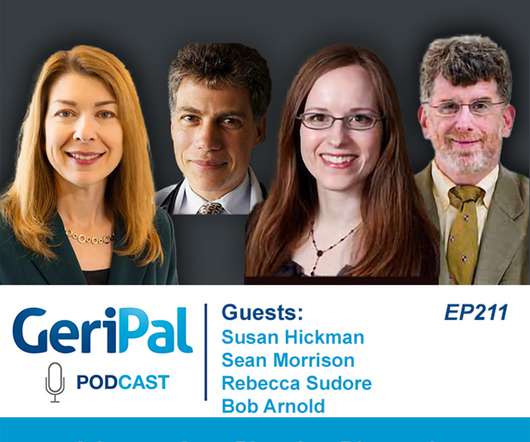Dysphagia Revisited: A Podcast with Raele Donetha Robison and Nicole Rogus-Pulia
GeriPal
MARCH 14, 2024
So, it’s definitely possible in sort of that oldest old category that there may be what we call silent aspiration, where someone aspirates, and then they don’t cough or clear their throat, so you actually wouldn’t even know that they’re aspirating. Raele: Yep, they definitely can be. Raele: Yes, definitely.












Let's personalize your content